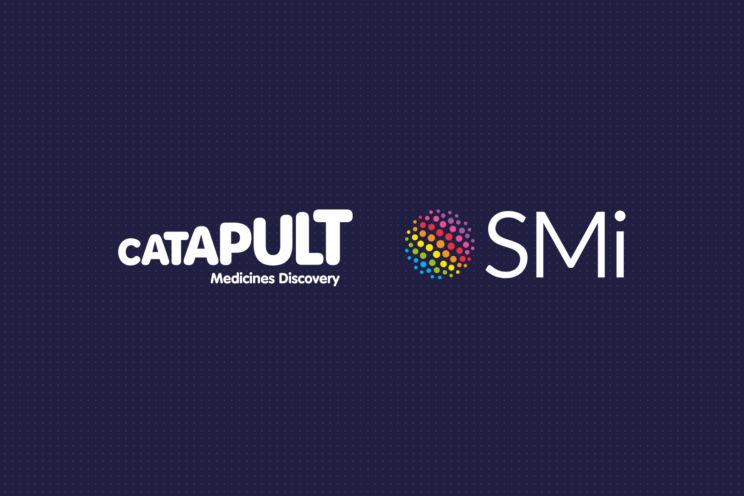Medicines Discovery Catapult (MDC) and SMi have secured a Biomedical Catalyst (BMC) grant to validate a new approach to detect cancer biomarkers. It will transform their use for routine cancer screening and enable monitoring of treatment efficacy in real time.
Liquid biopsies are where a simple blood sample is analysed for tiny quantities of cancer-related material (cancer biomarkers). They are increasingly used for early cancer detection, improved treatment guidance (as a companion diagnostic), and to check for recurrence. However, many factors in current approaches hinder their routine use. These include the complexity of test procedures, the expertise and time needed to run tests, and the high costs. New solutions are needed to speed up the adoption of the promising technique to diagnose this devastating disease.
Under the BMC-funded project, MDC will use SMi’s super-resolution optical platform to demonstrate a new approach that inspects liquid biopsies at single molecule resolution. This will allow researchers to detect and quantify each cancer indicator. As SMi’s optical platform can be adapted for an almost unlimited range of molecule types, it can be widely used across research and diagnosis applications. This was shown most recently in another successful MDC and SMi project to detect viral genomes, viral proteins, and the associated antibodies the patient produces in response to viral infection.
A crucial part of the current BMC-funded cancer project is screening paired samples using SMi’s optical platform and ‘gold-standard’ droplet digital PCR (ddPCR) testing. These technologies are available in MDC’s cutting-edge laboratories at Alderley Park in Cheshire.
SMi’s technology will overcome current technical challenges by rapidly and simultaneously detecting different cancer-associated biomarkers, from a single patient blood sample, in less than one second. This capability will be game-changing at a time when the number of cancer biomarker panels is growing, but the market still relies upon complex biochemical assays and costly, time-consuming next-generation sequencing (NGS) techniques.
Dr Matthew Burnham, Lead Scientist at Medicines Discovery Catapult, said:
“MDC is delighted to continue our partnership with SMi, to transform screening and treatment for cancer patients. We have supported the evolution of SMi’s unique and innovative technology for more than a year. We are pleased to have secured this funding to build upon our first joint study on infectious disease detection.
“MDC has access to the current gold-standard diagnostic devices and is uniquely placed to help SMi compare these results with its platform’s results. Our in-house expertise will help SMi validate the cancer biomarker approach. This will contribute to quicker, more accurate diagnoses for this devastating disease affecting so many people.”
Dr Andrew Thompson, CEO at SMi, said:
“SMi is creating a unified platform that is based upon single molecule imaging. It provides unprecedented performance in an automated, user-friendly format and will have far-reaching benefits for diagnosis and the discovery of new medicines. This latest funding allows us to demonstrate our ability to rapidly screen for multiple biomarkers and multiple cancer types, allowing us to accelerate our product development and deliver accurate diagnosis to patients much sooner. MDC’s scientists have a broad range of talents and in-house resources, and we are looking forward to continue growing our close partnership.”
SMi’s technology combines an automated super-resolution instrument, consumable sensor chips and software analysis. It uses SMi’s proprietary expertise in complex image analysis and particle detection. It is unique in many ways, not least as there is currently no other diagnostic technology that can achieve the molecular detection of DNA and protein biomarkers needed to improve cancer diagnosis.
MDC reshapes drug discovery for patient benefit and transforms great UK science into better treatments through partnership. It works to tackle industry-led challenges and overcome the barriers that limit today’s drug discovery with effective interventions.



